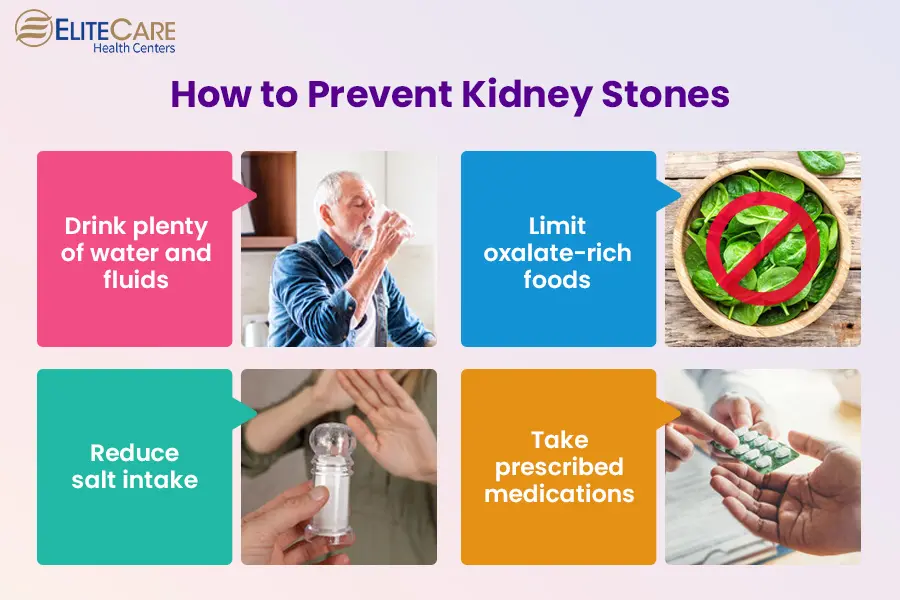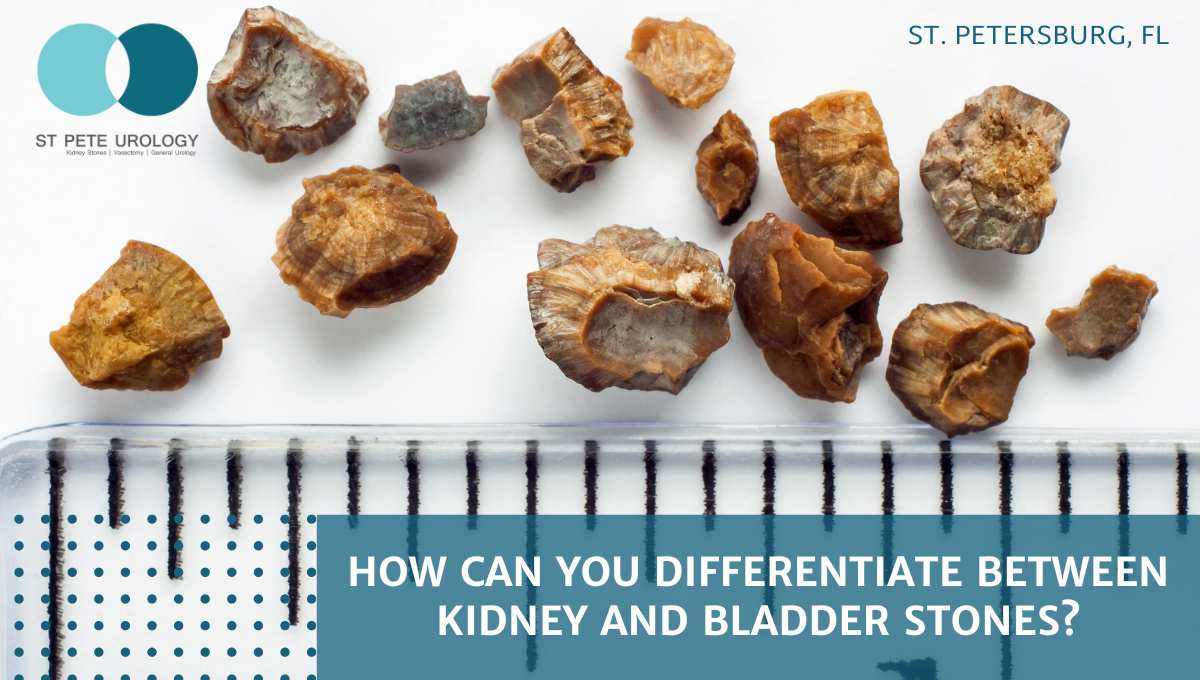An Extensive Analysis of Treatment Options for Kidney Stones Versus Urinary Tract Infections: What You Need to Know
The distinction between therapy alternatives for kidney stones and urinary system system infections (UTIs) is essential for reliable person management. While UTIs are usually attended to with anti-biotics that supply fast relief, the method to kidney stones can differ dramatically based upon private aspects such as stone size and make-up. Non-invasive techniques like extracorporeal shock wave lithotripsy (ESWL) may appropriate for smaller sized stones, yet bigger or obstructive stones frequently require even more invasive techniques. Understanding these subtleties not only informs clinical choices however also boosts individual results, inviting a more detailed exam of each condition's treatment landscape.
Understanding Kidney stones
Kidney stones are hard deposits created in the kidneys from minerals and salts, and comprehending their composition and development is crucial for efficient monitoring. The main kinds of kidney stones consist of calcium oxalate, calcium phosphate, struvite, uric acid, and cystine stones, each with distinct biochemical origins.
The formation of kidney stones takes place when the concentration of certain materials in the pee increases, bring about crystallization. This condensation can be influenced by urinary system pH, quantity, and the existence of preventions or marketers of stone formation. Low urine volume and high acidity are conducive to uric acid stone development.
Comprehending these aspects is essential for both prevention and treatment (Kidney Stones vs UTI). Effective management strategies may include dietary modifications, enhanced fluid intake, and, in some cases, pharmacological interventions. By identifying the underlying reasons and sorts of kidney stones, doctor can carry out tailored methods to reduce recurrence and improve patient outcomes
Overview of Urinary System System Infections
Urinary system tract infections (UTIs) are common bacterial infections that can influence any kind of part of the urinary system, including the kidneys, ureters, bladder, and urethra. Most of UTIs are triggered by Escherichia coli (E. coli), a kind of germs typically found in the intestinal tracts. Females are much more vulnerable to UTIs than men as a result of physiological differences, with a much shorter urethra promoting less complicated bacterial access to the bladder.
Signs and symptoms of UTIs can vary depending on the infection's area however typically include constant urination, a burning experience throughout urination, strong-smelling or over cast urine, and pelvic discomfort. In a lot more severe instances, particularly when the kidneys are involved, signs may also consist of fever, cools, and flank pain.
Risk elements for creating UTIs consist of sexual activity, specific kinds of birth control, urinary system tract irregularities, and a damaged immune system. Motivate therapy is important to stop difficulties, including kidney damage, and normally entails antibiotics tailored to the particular germs included.
Therapy Alternatives for Kidney stones

If the stones are bigger or create substantial pain, non-invasive treatments such as extracorporeal shock wave lithotripsy (ESWL) might be utilized. This method uses acoustic waves to break the stones right into smaller sized pieces that can be a lot more quickly gone through the urinary tract.
In instances where stones are as well big for ESWL or if they obstruct the urinary system, ureteroscopy might be suggested. This minimally invasive treatment entails making use of a little scope to eliminate or break up the stones straight.

Therapy Choices for UTIs
Just how can doctor properly attend to urinary tract infections (UTIs)? The key technique involves a comprehensive assessment of the patient's signs and symptoms and clinical history, followed by ideal analysis testing, such as urinalysis and pee culture. These tests help determine try this website the causative virus and identify their antibiotic susceptibility, assisting targeted treatment.
First-line treatment usually includes anti-biotics, with choices such as nitrofurantoin or trimethoprim-sulfamethoxazole, dig this depending on regional resistance patterns. For uncomplicated instances, a short training course of antibiotics (3-7 days) is frequently enough. In recurring UTIs, companies may think about alternative methods or prophylactic prescription antibiotics, including way of life alterations to decrease danger factors.
For individuals with difficult UTIs or those with underlying health and wellness issues, much more hostile treatment may be needed, possibly involving intravenous prescription antibiotics and more diagnostic imaging to evaluate for problems. Additionally, person education and learning on hydration, hygiene techniques, and symptom management plays a critical duty in avoidance and recurrence.
Contrasting Results and Efficiency
Evaluating the end results and efficiency of treatment choices for urinary system infections (UTIs) is vital for optimizing patient treatment. The main therapy for uncomplicated UTIs typically entails antibiotic therapy, with alternatives such as nitrofurantoin, trimethoprim-sulfamethoxazole, and fosfomycin.
On the other hand, treatment results for kidney stones differ significantly based upon stone make-up, location, and dimension. Alternatives range from traditional management, such as hydration and pain control, to interventional treatments like extracorporeal shock wave lithotripsy (ESWL) and ureteroscopy. While ESWL has a high success price for smaller stones, issues can arise, requiring additional treatments.
Ultimately, the efficiency of therapies for both problems rests on precise medical diagnosis and link customized strategies. While UTIs generally respond well to prescription antibiotics, kidney stone monitoring may call for a complex method. Continual assessment of treatment outcomes is vital to boost person experiences and reduce recurrence rates for both UTIs and kidney stones.
Conclusion
In summary, treatment methods for kidney stones and urinary tract infections differ substantially because of the distinctive nature of each problem. UTIs are largely addressed with antibiotics, offering prompt alleviation, while kidney stones demand customized treatments based on size and structure. Non-invasive techniques such as extracorporeal shock wave lithotripsy appropriate for smaller stones, whereas larger or obstructive stones might need ureteroscopy. Acknowledging these differences enhances the ability to offer optimal patient treatment in taking care of these urological problems.
While UTIs are typically attended to with prescription antibiotics that offer rapid relief, the approach to kidney stones can vary dramatically based on specific aspects such as stone dimension and structure. Non-invasive methods like extracorporeal shock wave lithotripsy (ESWL) might be appropriate for smaller sized stones, yet larger or obstructive stones commonly need even more intrusive techniques. The key types of kidney stones include calcium oxalate, calcium phosphate, struvite, uric acid, and cystine stones, each with unique biochemical beginnings.In contrast, treatment end results for kidney stones differ considerably based on stone structure, size, and place. Non-invasive approaches such as extracorporeal shock wave lithotripsy are appropriate for smaller sized stones, whereas larger or obstructive stones may need ureteroscopy.
Comments on “Just how to Separate Between Kidney Stones vs UTI: Secret Elements and Analysis Tips”